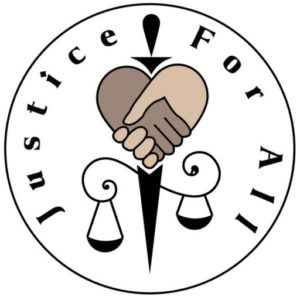40 Days of Fire Racial Justice Community Organizing Campaign 
40 Days of Fire is a statewide racial justice community organizing campaign designed to educate and empower folks to participate in this important work in Vermont. This means amplifying our message, increasing our efforts in community outreach and education and organizing folks for action. We are also registering voters across the state. Please support the 40 Days of Fire campaign here and help us set this state on fire.
*Newly Added*
Here is the current slide deck for the 40 Days of Fire: Racial Justice Community Organizing Campaign.
Act 9 – An act relating to racial equity in State government
On June 28 the Governor signed S.5, creating Act 9 of the Special Session. Act 9 is a landmark accomplishment in Vermont, being the first legislative mandate creating an apparatus to mitigate systemic racism across all state government in Vermont. The act creates a new five-year position of Executive Director of Racial Equity within the Executive Branch and tasks the position with identifying and working to eradicate systemic racism within State government. It also creates the Racial Equity Advisory Panel to work with the Executive Director of Racial Equity to implement reforms. Justice For All, other Racial Justice Reform Coalition member organizations and community members, invested countless hours in this grass root effort. Legislators and the Governor’s Office also worked under extraordinary conditions to get this law passed. Read more on Act 9 here.
Act 9 Implementation
The Governor issued Executive Order 04-18 when he vetoed S.281 (predecessor of S.5 in the regular session). Executive Order18-04 is bad news. It was issued on a false premise (S.281 being unconstitutional) AND it undermines the original intent of the systemic racism mitigation legislation. Go here and learn more and join in in asking the Governor to rescind Executive Order 04-18.
There is no centralized function that is communicating general information on how to apply to be a member of the panel; which entities have made those appointments or who has been appointed. Follow one or all of these links to submit to one of the Racial Equity Advisory Panel member appointing entities.
Time is of the essence. Members must be appointed on or before September 1, 2018.
The statute indicates that the “Panel shall have the administrative, legal, and technical support of the Agency of Administration.” Contact the Agency of Administration and ask them to assist in the implementation of Act 9 by providing the community the service of communication and updates on progress of panel appointments and future activity.
Act 54 – An act relating to the Racial Disparities in the Criminal and Juvenile Justice System Advisory Panel
Act 54 consists of three components. The first component, the Advisory Panel, established within the Office of the Attorney General, is comprised of 13 members, including five members appointed by the Attorney General to represent the interests of communities of color. The Advisory Panel has been meeting for about one year. Numerous meetings were conducted and various committees were formed. Follow-on activity included committee reports, further panel deliberations and draft report reviews. Specific feedback from panel members was incorporated into the report and the draft report was updated. With calls for additional material content concerns yielding only concerns surrounding process and having requested two legislative extensions,the Chair received permission from the Assistant Attorney General to release the report as a report of the Chair and the Vice-Chair. on March 2nd, 2018. What followed was accusations and mischaracterizations levied by agency head panel members alleging “ostensible” submission and “self-serving” intent. The Chair and Vice-chair resigned upon submission the report.
Panel Implementation
With no vote on any recommendation in the report, and not offering the former Chair any material concern, all of the previous recommendations have been discarded and the process has been reinitiated. Upon reviewing Panel minutes last month we noticed comments surrounding three of the 17 recommendations. It was however only the newly appointed community Panel members who raised questions on recommendations (none of agency representatives). The former Chair and Vice-Chair have reached out to the Chair for answers, encouraging him to salvage recommendations. Contact the Panel Chair and the Attorney General and let them know that we expect that they would publicly deliberate the original work of the panel to enable the general public to understand the agency head’s objections to the specific recommendations.
The second component of Act 54 is the Attorney General and Human Rights Commission Task Force. The legislation requires the Attorney General and Human Rights Commission, along with interested stakeholders, to develop a strategy to address racial disparities within the State systems of education, labor and employment, access to housing and health care, and economic development. The “Task Force” Report was released on 15 December 2017.
Task Force Implementation
Input submitted from the Stakeholder’s “Horizontal Group” was omitted from the report. Given the definition of “systemic racism”, the global centric recommendations from this group of stakeholders should clearly be a linchpin in the process. As a result, the report on whole provided little in terms of novel approaches to address systemic racism across all state systems. The focus was more on linking legacy activities designed to address overt racism. Read the report here and contact the HRC or AG’s Office to press to incorporate ALL of the stakeholders input, modify the report as appropriate and ensure there are provisions for accountability.
The final component of Act 54 is the Fair and Impartial Policing Policy (FIPP). The legislation required the Vermont Criminal Justice Training Council (VCJTC) and the Attorney General’s Office to bring the existing FIPP into compliance with immigration law and the VCJTC to create a cohesive FIPP. VCJTC is also required to update the policy biannually and the Attorney General and VCJTC must review agency policies and correct noncompliance as appropriate. The FIPP was negotiated and revised, reviewed by the AG to ensure compliance with federal immigration statutes, revised again and adopted by the Vermont Criminal Justice Training Council. All agencies are under legislative mandate to adopt the FIPP and the Policies of all agencies should have been reviewed in April.
FIPP Implementation
Inconstant with process outlined in Act 54, the VCJTC unilaterally changed the FIPP (without the consultation of the Human Rights Commission) in November of 2017, in response to a threat from the US DOJ and to secure Community Oriented Policing grant valued at over five hundred thousand dollars for state police (additional funding for other agencies). Neither legislative leadership nor the Attorney General’s Office has taken any action in response. Reach out to your legislator and express your concern and disappointment that law enforcement “sold out” by usurping the updating process that protects the integrity of this document that serves to protects the lives of black and brown people. Email and demand answers from legislative leadership as to why this was allowed to occur and what they will be doing to ensure that it doesn’t happen again.
H.R.25 – House Resolution encouraging the Senate of the State of Vermont in 2019 to initiate a proposal for a State constitutional amendment to remove from the Vermont Constitution all language authorizing slavery or indentured servitude
This year we petitioned the legislature for a resolution encouraging the 2019 Senate, to initiate a constitutional amendment to remove reference to slavery from the Vermont Constitution. We pushed the Senate hard, yet they were unwilling to introduce such resolution. The Senate did however introduce, took up and adopted a resolution urging the 2019 Senate to initiate a constitutional amendment regarding equal rights. The House however did indeed go on to introduce this historic resolution late in the session. The House Government Operations Committee did not take up the resolution.
Conclusion
The challenge of the state of Vermont’s constitution containing reference to slavery is older than the state itself. The implications, as across all of the United States is that this state was not established nor the existing systems implemented for black and brown people. The work of Justice For All started in the criminal justice system but we have come to understand as Act 54 and Act 9 seek to address, systemic racism is at our foundation and pervasive throughout society. Black and brown people are at incredibly severe disadvantages as we seek gainful employment and suitable housing. Our access to quality health services and education is systematically impeded and the justice system has always produced disparate outcomes for black and brown people. This country has always been the epitome of white imperialism and supremacy, a nation where political and economic power resides with white people. As we continue this work and identify and dismantle systemic racism in every aspect of society, we are reminded that it was once said ” …We hold these truths to be self-evident, that all men are created equal.” Later this declaration goes on to say “whenever any Form of Government becomes destructive of these ends, it is the Right of the People to alter or to abolish it, and to institute new Government, laying its foundation on such principles and organizing its powers in such form, as to them shall seem most likely to effect their Safety and Happiness…” It is time that we alter this form of government to ensure our safety and happiness. Donate to 40 Days of Fire here:
Mark Hughes,
Executive Director,
Justice For All
Justice For All Membership available here.










